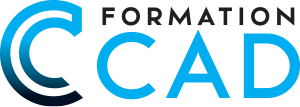Microsoft Project Advanced
Deepen understanding of MS Project’s advanced features.
Ability to effectively manage a complex project.
Master the optimization of resources and schedules in MS Project.
Consolidate and manage multiple projects.
Our training options
Private
Remotely or at your office,
to suit your schedule
made-to-measure :
price per team

Chloé Bessette
Training Manager
- In online classes or at your office
- For a group/team from your company/organization
- Standard or custom-made syllabus
- Live, private Teacher
- Training manual and exercice files provided
- Official Attestation given after course completion
Microsoft Project Advanced
Contact
We'll get back to you within one business day.
Prerequisites
- Knowledge of MS Project – Intermediate
- Have access to a computer and Microsoft MS Project (versions 2013, 2016 or OFFICE 365)
The basics:
- Summary of the basic concepts of MS Project;
- Review project creation, planning, and resource allocation;
- WBS (Work Breakdown Structure) Codes;
- Analyze specific use cases of participants.
Task Scheduling – Gantt and PERT:
- Use of constraints on tasks;
- Impact of constraints on the critical path;
- Creation of models and global management via ‘mpt’;
- Deadline management: analysis of the critical path and total and free margins;
- Integrated management of several projects
(Multi-Project consolidation).
Resource Management:
- Resolution of assignment conflicts;
- Scheduling with extra time;
- Resource calendar management: Single project and multi-project;
- Shared resources and their use in multiple projects;
- Leveling resources and optimizing workload.
Budget:
- Monitoring and management of costs: budget vs. actual;
- Analysis of variances;
- Reports: Cash Flow, Project Status, and Gap Analysis;
- Introduction to earned value management.
Schedule planning
- Use project-specific schedules and exceptions;
- Scheduling vacations, holidays and flexible hours;
- Assigning calendars: Standard, Task, and Resource;
- Manage resource and task calendars.
Project Monitoring:
- Update management;
- Calculation of the different types of advancement by the software (completed, physical, working);
- Impact of changes on the baseline;
- Use of custom dashboards and reports;
- Progress curves;
- Corrective Actions.
Customization of the project:
- Integration of risk management;
- Use custom fields to track risks and issues;
- Implementation of contingency plans and mitigation strategies;
- Creation of performance indicators;
- Effective communication: filters, views, and custom reports;
- Links with Excel and Visio (visual reports).
Evaluate a schedule in a few steps:
- Follow the steps to evaluate/optimize a Baseline schedule;
- Follow the steps to evaluate/optimize an updated schedule.
Questions & Answers
In this Microsoft Project training you will go beyond the basics in project creation, planning and resource allocation, as well as WBS codes.
You will explore task scheduling with Gantt and PERT, constraints on tasks, impact on the critical path, managing deadlines and multiple projects. Resource management will be addressed with the resolution of
assignment conflicts, scheduling with extra time, and resource leveling.
You’ll also learn about cost management, schedule tracking, project tracking, and project customization with risk management and effective communication.
Finally, you will learn how to evaluate and optimize a reference schedule.
Advanced
- Knowledge of MS Project – Intermediate
- Have access to a computer and Microsoft MS Project (versions 2013, 2016 or OFFICE 365)
- Deepen understanding of MS Project’s advanced features.
- Ability to effectively manage a complex project.
- Master the optimization of resources and schedules in MS Project.
- Consolidate and manage multiple projects.
The basics:
- Summary of the basic concepts of MS Project;
- Review project creation, planning, and resource allocation;
- WBS (Work Breakdown Structure) Codes;
- Analyze specific use cases of participants.
Task Scheduling – Gantt and PERT:
- Use of constraints on tasks;
- Impact of constraints on the critical path;
- Creation of models and global management via ‘mpt’;
- Deadline management: analysis of the critical path and total and free margins;
- Integrated management of several projects
(Multi-Project consolidation).
Resource Management:
- Resolution of assignment conflicts;
- Scheduling with extra time;
- Resource calendar management: Single project and multi-project;
- Shared resources and their use in multiple projects;
- Leveling resources and optimizing workload.
Budget:
- Monitoring and management of costs: budget vs. actual;
- Analysis of variances;
- Reports: Cash Flow, Project Status, and Gap Analysis;
- Introduction to earned value management.
Schedule planning
- Use project-specific schedules and exceptions;
- Scheduling vacations, holidays and flexible hours;
- Assigning calendars: Standard, Task, and Resource;
- Manage resource and task calendars.
Project Monitoring:
- Update management;
- Calculation of the different types of advancement by the software (completed, physical, working);
- Impact of changes on the baseline;
- Use of custom dashboards and reports;
- Progress curves;
- Corrective Actions.
Customization of the project:
- Integration of risk management;
- Use custom fields to track risks and issues;
- Implementation of contingency plans and mitigation strategies;
- Creation of performance indicators;
- Effective communication: filters, views, and custom reports;
- Links with Excel and Visio (visual reports).
Evaluate a schedule in a few steps:
- Follow the steps to evaluate/optimize a Baseline schedule;
- Follow the steps to evaluate/optimize an updated schedule.
Questions & Answers
Need to assess your level?
Select the right course for you using the Formation CAD Auto-Assessment tool

Related courses
Formations apparentées
- Official Certificate
approved

